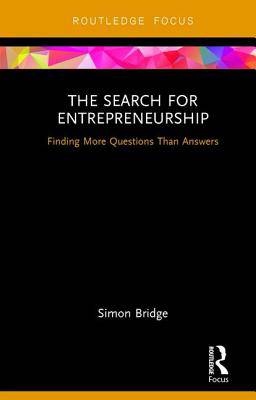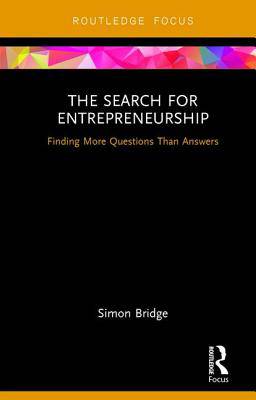
- Retrait gratuit dans votre magasin Club
- 7.000.000 titres dans notre catalogue
- Payer en toute sécurité
- Toujours un magasin près de chez vous
- Retrait gratuit dans votre magasin Club
- 7.000.0000 titres dans notre catalogue
- Payer en toute sécurité
- Toujours un magasin près de chez vous
Description
Since the 1980s, governments have often sought to encourage entrepreneurship on the assumption that it creates small businesses which are the primary drivers of job creation. Largely because of this assumption, entrepreneurship has become a valid subject for academic research attracting extensive funding.
Yet despite this explosion of scholarship, there is no accepted model of how entrepreneurship operates or even a commonly accepted definition of what it is. Simon Bridge posits that this is because entrepreneurship has been studied as if it were a deterministic science, based on the false assumption that it exists as a specific discrete identifiable phenomenon operating in accordance with consistent, predictable 'rules'.
This challenging book contends that this misdirected search has produced more questions than answers. Accepting that entrepreneurship as we have conceived it does not exist could lead to new and valuable insights into what the different forms of entrepreneurship are and how they might be influenced. Scholars, advanced students and policy makers will find this a thought-provoking insight into the myths and misconceptions of 'entrepreneurship'.
Spécifications
Parties prenantes
- Auteur(s) :
- Editeur:
Contenu
- Nombre de pages :
- 134
- Langue:
- Anglais
- Collection :
Caractéristiques
- EAN:
- 9781138292680
- Date de parution :
- 06-12-16
- Format:
- Livre relié
- Format numérique:
- Genaaid
- Dimensions :
- 145 mm x 218 mm
- Poids :
- 317 g

Les avis
Nous publions uniquement les avis qui respectent les conditions requises. Consultez nos conditions pour les avis.






